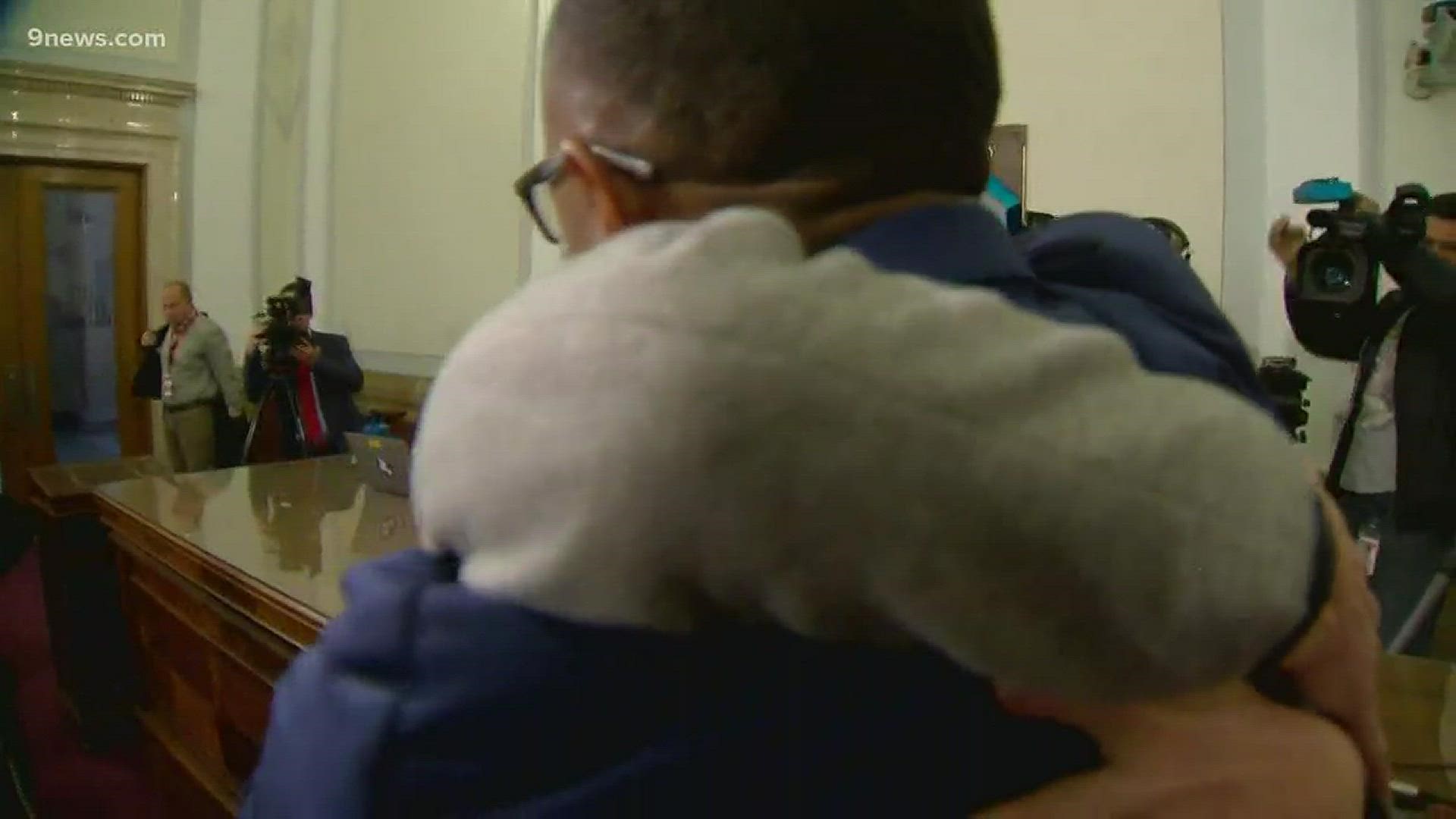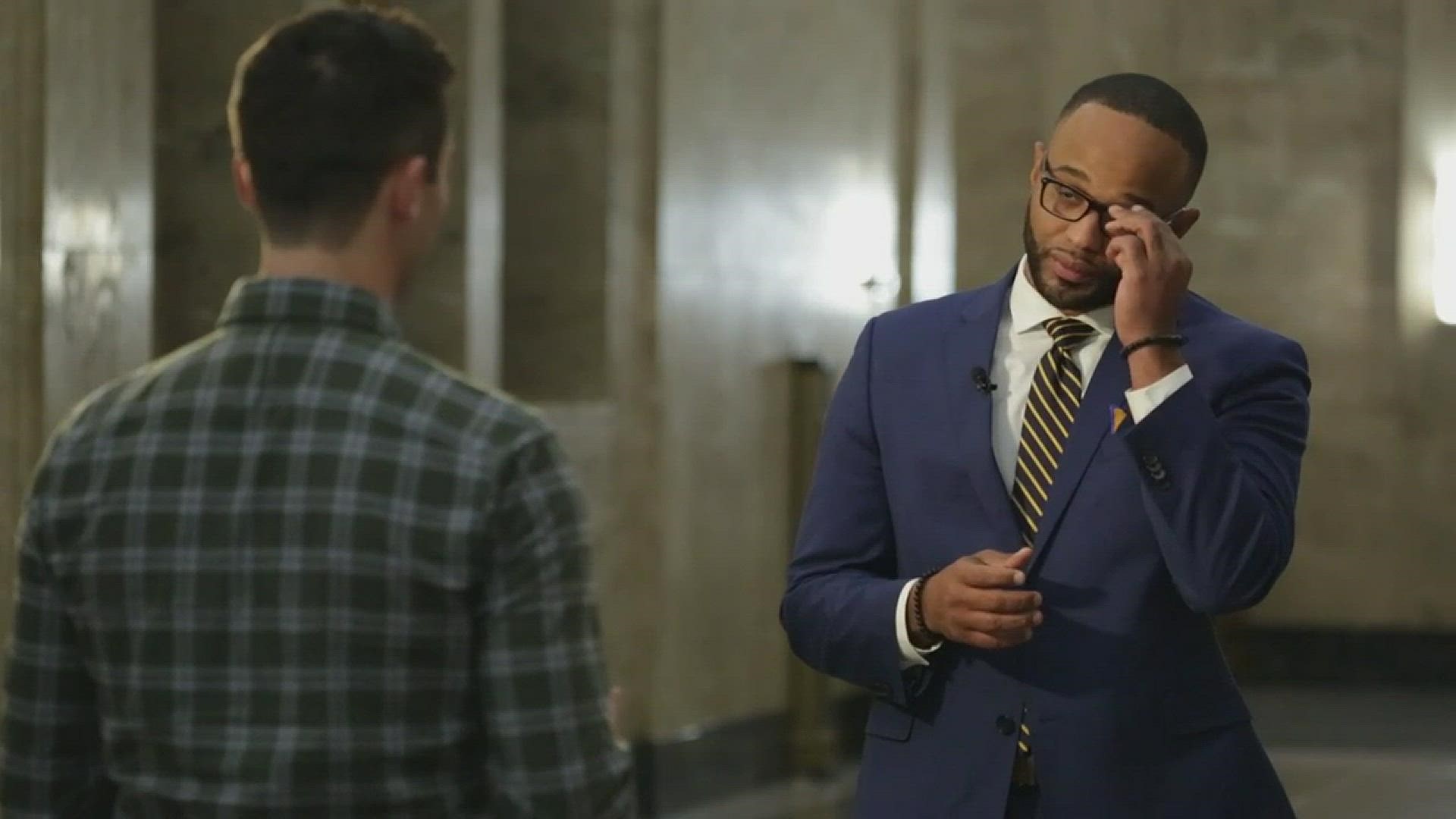A plan to allow safe injection sites in Denver passed a second hurdle at Monday's City Council meeting. The proposal is to open one pilot location for two years.
On Monday, City Council voted 12-1, with City Council member Kevin Flynn the sole vote against. Now the proposal moves to the Colorado General Assembly where a previous bill to allow such sites died in committee despite bipartisan support.
According to City Council, the site cannot use public funds and the site can't open until the General Assembly passes a bill allowing such sites to exist.
Flynn told the chamber on Monday that voting 'no' on the injection sites was one of the most difficult decisions of his life. He added that he thinks the sites would be enabling and that he would like the state to follow Utah's directive and widely distribute opioid overdose antidote naloxone.
On Tuesday, Denver Mayor Michael Hancock issued a statement indicating he would sign the ordinance. "There are implementation and legal details to work out, but I fully support the bill City Council approved last night," he said in a statement provided to 9NEWS.
The state's outgoing and incoming Attorney Generals also appear on board with the sites. Outgoing AG Cynthia Coffman said that things like safe injection sites may help stop the spread of HIV and Hepatitis, as well as be an opportunity to help those suffering from addiction get off the drugs.
In a series of tweets since the measure was approved, incoming AG Phil Weiser said the proposal is a key step to "opening the path for treatment and recovery." He also retweeted several of his followers' stories about either their or a loved one's battle with addiction, all in the same vein of supporting safe injection sites.
In an interview with 9NEWS reporter Ryan Haarer Monday night, City Council member Albus Brooks explained why the proposal was so important to him, why he pushed so hard for it and responded to some critics of the notion of "safe injection sites."
You can view the full interview at the bottom of this article or at this link.
Haarer asked Brooks questions that 9NEWS viewers had regarding the sites. One viewer asked what would happen inside these sites; would someone just watch the users? Is it a way to connect people to addiction services?
"First of all, we need to understand these are not just drug abusers," Brooks said in response, "these are individuals who are our neighbors who are struggling with drugs. It's a sickness. Addiction is a sickness..."
He also explained that in the ordinance that would create the pilot site, there are treatment options lining the proposal.
"There are barriers to treatment - there are only 80 or so treatment beds at Denver Health... Arapahoe House is now closed so people do not have access to treatment - people do not have access to treatment and that's what we need to approve as well," the council member added.
Another viewer called the injection sites enabling to drug users. Brooks disagreed.
"First of all, the city would not be running the site - this would be run by a nonprofit. Trained individuals... helping them get to the next level of services if they want it and getting them access to treatment if they want," he said.
He added that, no matter what, people are going to use drugs. The injection sites will give them a place to do it safely and will also hopefully stop the spread of diseases.
Last week, Brooks told 9NEWS the idea behind the proposal is to move drug use, including heroin and cocaine, out of public places like bathrooms and alleys, to a supervised spot where people would be using "in the light."
Brooks said he is passionate about this after his own brush with opioids, which is a story he started sharing publicly last year.
This is the second time Brooks has worked to pave the way for a supervised injection site. Earlier this year, the state legislature was asked to waive a nuisance law so the site wouldn’t be shut down, but the state legislature did not approve the waiver in February - effectively ending any prospects of a supervised injection site.
Brooks said the plan is to bring up this issue again after the new session starts in January and that it’s important for the proposed plan to comply with state law.
Not everyone agrees this pilot project is the best idea. When Lynette Martinez, who is from Brighton, found out what the Denver City Council was considering, she said she felt so compelled to share what happened to her family she reached out to 9NEWS to talk.
“I lost my niece eight months ago to an overdose of heroin,” she said.
Martinez said she doesn’t support the pilot project, worried it would further enable drug addicts and give them one more place to get high.
In response, Brooks said he studied Vancouver, Canada's supervised injection site program already in place and got a very different picture.
Brooks said Vancouver is one of more than 60 cities around the world - and the closest to Denver - with similar supervised injection site programs already in effect. Brooks said the program shows projects like this can help prevent overdose deaths, reduce diseases spreading and help people access treatment.
According to the Vancouver Coast Health website, last year 7,301 people made 175,464 visits and there were 2,151 overdose interventions.
Denver is not the only U.S. city working on plans for a safe injection site. Others include Seattle, Philadelphia and San Francisco - just to name a few.
The question of whether or not the federal government steps in and says a supervised injection site violates federal law is still to be seen. Brooks said, if that was this case, he would understand - with one caveat.
“We would say we are responding to a public health crisis,” he said. “If you still want to shut down our facility, knowing we are solving a public health crisis, be our guest. We are protecting our community.”
The first reading passed City Council in an 11 to 1 vote. One person was absent last Monday night.
City Council member Kevin Flynn was the sole vote against it this Monday.


